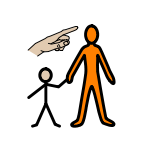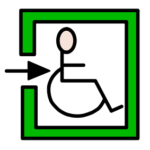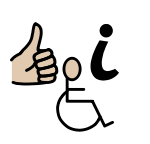Click on the words in bold to read what they mean


People with intellectual disabilities must be treated
as equal citizens.
For this reason, it is very important that they can vote
and make their voices heard.
László Bercse is the new vice-president of Inclusion Europe.
László believes that voting is a right,
because it allows people
to make their voices heard.

Some people with intellectual disabilities
are not allowed to vote.
That makes them feel different
from other people.
When people with intellectual disabilities are not allowed to vote,
this is because they are under guardianship.

Sometimes if they want their right to vote,
people under guardianship
need to talk to a judge first.
There they have answer some questions
on politics and other topics.
This is not right.
Other people do not need to this
so they can vote.
There have been improvements in countries like:
- Denmark
- France
- Germany
- Spain
In these countries, people under guardianship
are now allowed to vote.
But in many European countries,
many people with intellectual disabilities
still do not have the right to vote.


Inclusion Europe agrees that everyone should have
the right to vote.
Inclusion Europe also thinks that
no one should be put under guardianship.
Some people with intellectual disabilities
will need support in order to vote.
They might need:
when choosing who to vote for
in the polling stations

Information in easy-to-read language
and personal assistance in the voting booth
would make voting more accessible
for people with intellectual disabilities.
Read more about our elections campaign
for the European elections 2019





